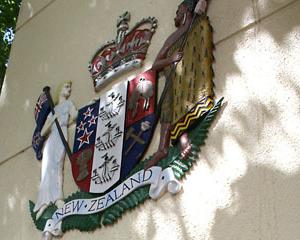A Dunedin man said to be behind a black market paua operation of almost $80,000 two and three years ago is on trial on 31 charges under the Fisheries Act.
Ryan Karl Tapsell was one of three men arrested in November 2011 as a result of Operation ''Apollo'', a Ministry of Fisheries investigation targeting a local group of paua poachers. The three were accused of taking excessive amounts of paua under illegally obtained customary authorisations and selling it to local fish and chip shop owners on the black market.
Tapsell (40), self-employed, denies seven charges of making false statements to get a customary authorisation, 13 of illegally taking paua to obtain a benefit, 10 of illegally selling paua to obtain a benefit and one of illegally possessing paua for the purpose of financial gain. His trial, before Judge Michael Crosbie and a jury, began in the Dunedin District Court yesterday and could take about 10 days.
Otago Crown solicitor Robin Bates and Leonie Matehaere are prosecuting while Tapsell is represented by Brian Kilkelly. The case relates to the taking and selling of paua in breach of the Fisheries Act between July 2010 and March 2011.
The Crown says Tapsell was the organiser and he part-owned the boat used during the paua harvesting. One of the other men, Liam Tenbeth, assisted Tapsell on the boat, helping lift the catch which was taken back to Tapsell's Bayview Rd home and shucked, Mrs Matehaere told the jurors in her opening summary.
A third man, Brett Houston, assisted Tapsell by going to various fish and chip shops in Dunedin and Mosgiel and finding out if they wanted to buy paua. If they did, Tapsell would drive his vehicle around to the back of the shop and the transaction would take place. Tenbeth and Houston had already been dealt with for their part in the operation and five fish and chip shop owners had pleaded guilty to illegally buying paua, Mrs Matehaere said.
Recreational fishers were allowed to take no more than 10 paua a day and could not accumulate more than 20 legally taken paua in their home. And they were not permitted to sell their legally taken paua. But it was possible to get permission to take more than the recreational limit of 10 by obtaining a customary authorisation.
The purpose for which the authorisation was issued had to be legitimate and, again, selling of the paua taken was not permitted. The Crown case was that Tapsell approached the local Tangata Tiaki, seeking customary authorisations for fictitious birthdays, weddings and other gatherings and that he used the subsequent authorisations to take large quantities of paua for the purpose of selling it.
It was also alleged Tapsell repeatedly dived for paua between the time he was granted the authorisation and the date the taking of the paua was permitted, Mrs Matehaere said. Based on covert monitoring carried out by the ministry, it was estimated Tapsell had taken about 2500 paua or 1.5 tonnes of green weight paua.
That equated to about 625kg of paua meat. And, with a $25 per kilo black market sales price, that meant a conservative profit of more than $15,500. The commercial retail value of that quantity of paua would have been $78,750. In a brief opening statement for the defence, Mr Kilkelly said Tapsell denied all of the charges.
He said he obtained the customary authorisations in good faith, on the basis of information given to him. The authorisations were legitimate and for legitimate reasons and anything he did was in line with the conditions set out in the authorisations.
Tapsell also denied taking any of the paua for a benefit or in contravention of the Fisheries Act. And he denied selling any of the paua or obtaining a benefit from any selling.
''He simply denies any wrongdoing,'' Mr Kilkelly told the court. The first of the Crown's 28 witnesses, Fishery Officer Tyrone Robinson, described the surveillance operation run between July 2010 and March 2011 when the Ministry secretly watched the accused's diving operations on the Otago coast, from Tomahawk Beach to north of Smaills Beach.
Text messages from phones belonging to Tapsell and the others established what the group was doing and how the sales profits were distributed. Tapsell received the bulk of the money. Mr Robinson will continue his evidence today.











